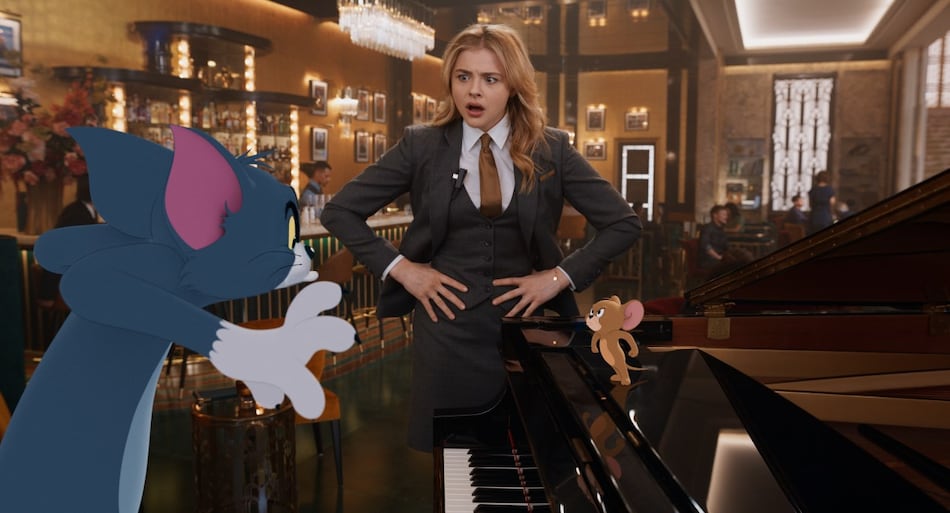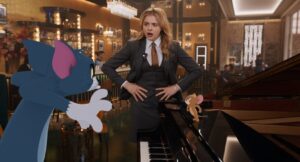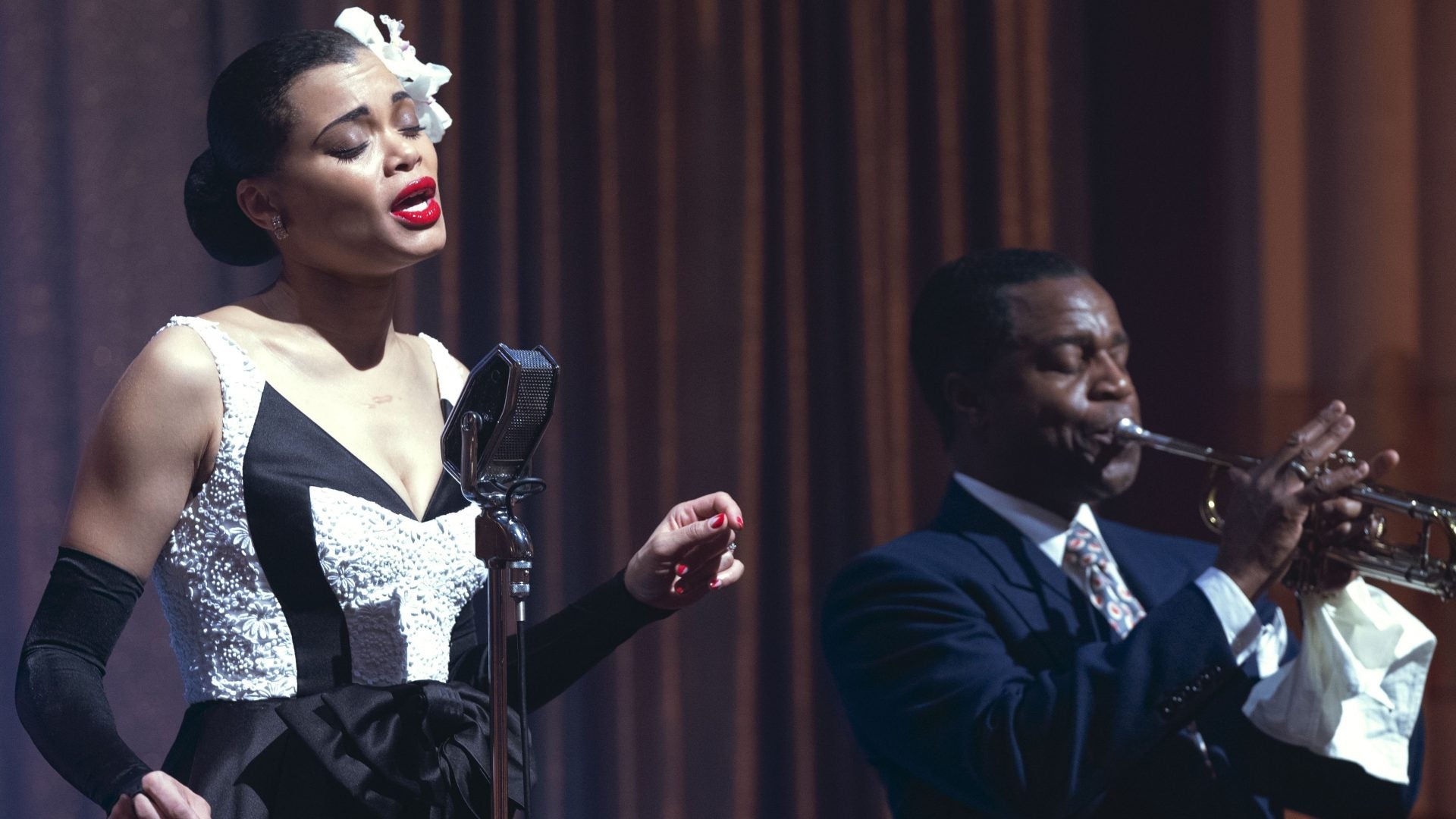Moxie
Posted on March 2, 2021 at 12:42 pm
B +| Lowest Recommended Age: | Middle School |
| MPAA Rating: | Rated PG-13 for thematic elements, sexual material, strong language, and some teen drinking |
| Profanity: | Some strong language |
| Alcohol/ Drugs: | Teen drinking |
| Violence/ Scariness: | References to rape, predatory behavior |
| Diversity Issues: | A theme of the movie |
| Date Released to Theaters: | March 3, 2021 |
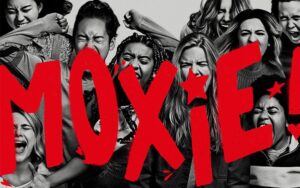
Vivian is shy and unsure of herself. Asked to write an essay on what she is passionate about and what steps she has taken to pursue it, she draws a blank. But we see in a dream she has the night before school starts, she has some strong feelings she does not know how to express. The arrival of a new student named Lucy (Alycia Pascual-Peña) will give her a new perspective and help her find her voice.
The school’s alpha male is Mitchell (Patrick Schwarzenegger), arrogant and predatory. But his behavior is dismissed by the school’s principal (Marcia Gay Harden as Ms. Shelley) and the students. When he finds he cannot intimidate Lucy, he becomes even more aggressive. Vivian tells Lucy to ignore him so he will move on to someone else. “Keep your head down,” she advises. Lucy says she will be keeping her head up, and Vivian for the first time considers how pernicious the behavior of Mitchell and his friends is. It is more than teasing.
Vivian is close to her single mom, Lisa, played by director/producer Amy Poehler. When Lisa says that at Vivian’s age she was trying to burn down the patriarchy (crucially, she admits that as engaged as she was, she made a lot of mistakes and was not as inclusive as she should have been). Vivian goes through Lisa’s old files and sees the “zine” she and her friends created. And so Vivian follows in that tradition (and in the tradition of “Bridgerton’s” Lady Whistldown and A in “Pretty Little Liars”), Vivian creates an anonymous zine called Moxie (1930s slang for spirited determination), calling out the behavior of the boys who publish the rankings and insult girls. She leaves copies in the girls’ rooms at school, asking everyone who supports her ideas to draw stars and hearts on their hands. And some of the girls too. So does one boy, Seth (Nico Hiraga of “Booksmart” and “Edge of Seventeen”).
“Moxie” is based on the novel by high school teacher Jennifer Mathieu, and you can see the lived experience of working with teenagers, at the same time righteous and vulnerable, in the film. At times, it becomes didactic, as though it is running through a checklist of abuse, and some of the items on that list (the right to wear a tank top to school) are out of proportion to the others. And the resolution in the end is far tidier than anyone who has seen or read about real-life cases will buy.
What works better is the portrayal of the strain on Vivian’s friendship with Claudia as she becomes closer in both the relationship and the style of Lucy. This is more than the usual teen drama about outgrowing childhood connections. It is about developing a deeper understanding and empathy, and that extends not just to Claudia, but to the other girls in the school as well. The emphasis on finding ways to support each other despite differences is well handled. The film should spark some important conversations, some second thoughts about the line between “boys will be boys” and recognizing and stopping damaging behavior. It even might inspire some stars and hearts, some zines, and other ways for girls to tell their stories.
Parents should know that this film concerns toxic masculinity and abuse ranging from insults and objectification to rape. It includes sexual references and some mild language.
Family discussion: Does this movie make you see some incidents at your school differently?
If you like this, try: “Nine to Five,” “Booksmart,” and the documentary “Roll Red Roll”

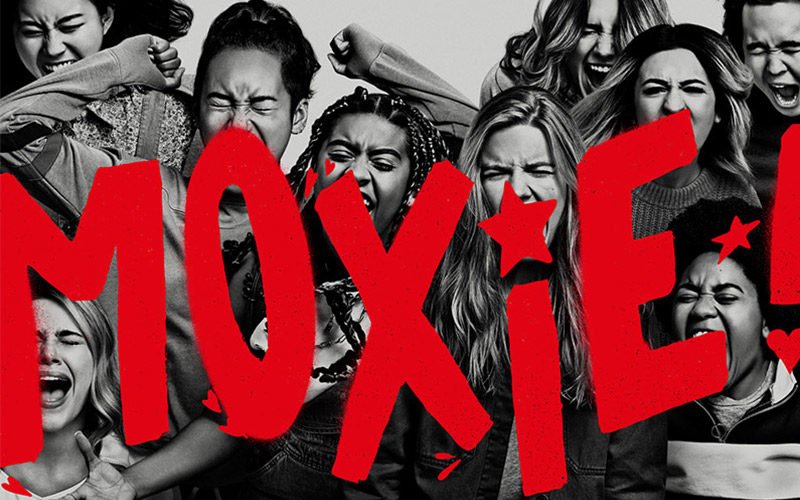

 “Raya and the Last Dragon” is a gorgeously animated fairy tale with thrilling action, irresistible characters, a heartwarming message, and Disney’s magic touch to lift the hearts of all ages. It has the scope and grandeur of a
“Raya and the Last Dragon” is a gorgeously animated fairy tale with thrilling action, irresistible characters, a heartwarming message, and Disney’s magic touch to lift the hearts of all ages. It has the scope and grandeur of a 